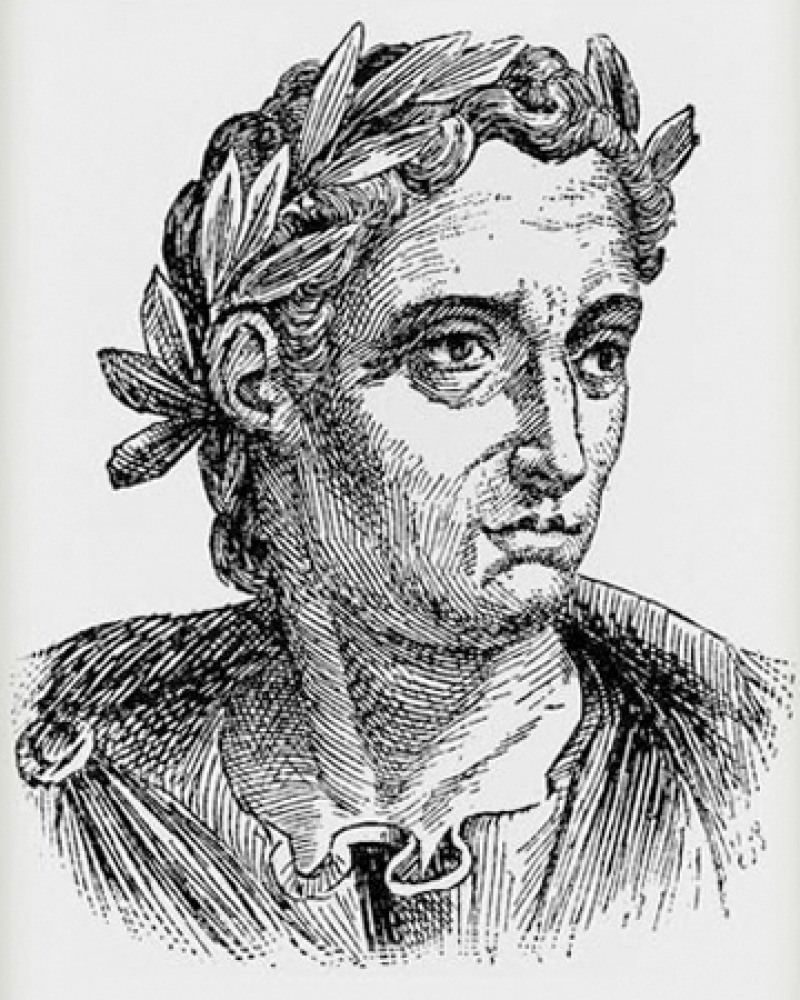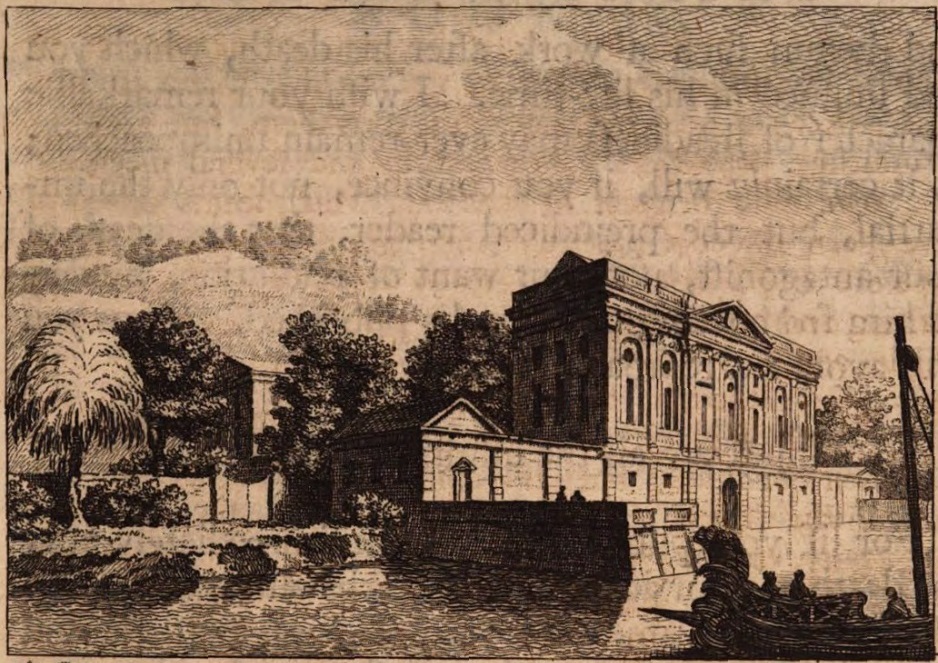
Gaius Plinius Caecilius Secundus, born Gaius Caecilius or Gaius Caecilius Cilo (61 – c. 113), better known as Pliny the Younger, was a lawyer, author, and magistrate of Ancient Rome. Pliny's uncle, Pliny the Elder, helped raise and educate him.
Pliny the Younger wrote hundreds of letters, of which 247 survive and are of great historical value. Some are addressed to reigning emperors or to notables such as the historian Tacitus. Pliny served as an imperial magistrate under Trajan (reigned 98–117), and his letters to Trajan provide one of the few surviving records of the relationship between the imperial office and provincial governors.
Pliny rose through a series of civil and military offices, the cursus honorum. He was a friend of the historian Tacitus and might have employed the biographer Suetonius on his staff. Pliny also came into contact with other well-known men of the period, including the philosophers Artemidorus and Euphrates the Stoic, during his time in Syria.
Pliny was by birth of equestrian rank, that is, a member of the aristocratic order of equites (knights), the lower (beneath the senatorial order) of the two Roman aristocratic orders that monopolised senior civil and military offices during the early Empire. His career began at the age of 18 and initially followed a normal equestrian route. But, unlike most equestrians, he achieved entry into the upper order by being elected Quaestor in his late twenties.
Pliny was active in the Roman legal system, especially in the sphere of the Roman centumviral court, which dealt with inheritance cases. Later, he was a well-known prosecutor and defender at the trials of a series of provincial governors, including Baebius Massa, governor of Baetica; Marius Priscus, governor of Africa; Gaius Caecilius Classicus, governor of Baetica; and most ironically in light of his later appointment to this province, Gaius Julius Bassus and Varenus Rufus, both governors of Bithynia and Pontus.
Pliny's career is commonly considered as a summary of the main Roman public charges and is the best-documented example from this period, offering proof for many aspects of imperial culture. Effectively, Pliny crossed all the principal fields of the organization of the early Roman Empire. It is an achievement for a man to have not only survived the reigns of several disparate emperors, especially the much-detested Domitian, but also to have risen in rank throughout.
Writings
Pliny penned his first work at age 14: a tragedy in Greek. Additionally, in the course of his life, he wrote numerous poems, most of which are lost. He was also known as a notable orator; though he professed himself a follower of Cicero's, Pliny's prose was more magniloquent and less direct than Cicero's.
Pliny's only oration that now survives is the Panegyricus Traiani. This was delivered in the Senate in 100 and is a description of Trajan's figure and actions in an adulatory and emphatic form, especially contrasting him with the Emperor Domitian. It is, however, a relevant document that reveals many details about the Emperor's actions in several fields of his administrative power such as taxes, justice, military discipline, and commerce. Recalling the speech in one of his letters, Pliny shrewdly defines his own motives thus:
I hoped in the first place to encourage our Emperor in his virtues by a sincere tribute and, secondly, to show his successors what path to follow to win the same renown, not by offering instruction but by setting his example before them. To proffer advice on an Emperor's duties might be a noble enterprise, but it would be a heavy responsibility verging on insolence, whereas to praise an excellent ruler (optimum principem) and thereby shine a beacon on the path posterity should follow would be equally effective without appearing presumptuous.
Epistulae
The largest surviving body of Pliny's work is his Epistulae (Letters), a series of personal missives directed to his friends and associates. These letters are a unique testimony of Roman administrative history and everyday life in the 1st century AD. Especially noteworthy among the letters are two in which he describes the eruption of Mount Vesuvius in August 79, during which his uncle Pliny the Elder died (Epistulae VI.16, VI.20), and one in which he asks the Emperor for instructions regarding official policy concerning Christians (Epistulae X.96).
Epistles concerning the eruption of Mount Vesuvius.
Pliny wrote the two letters describing the eruption of Mount Vesuvius approximately 25 years after the event, and both were sent in response to the request of his friend, the historian Tacitus, who wanted to know more about Pliny the Elder's death. The two letters have great historical value due to their accurate description of Vesuvius' eruption; Pliny's attention to detail in the letters about Vesuvius is so keen that modern volcanologists describe those types of eruptions as "Plinian eruptions
Manuscripts
In France Giovanni Giocondo discovered a manuscript of Pliny the Younger's letters containing his correspondence with Trajan. He published it in Paris dedicating the work to Louis XII. Two Italian editions of Pliny's Epistles were published by Giocondo, one printed in Bologna in 1498 and one from the press of Aldus Manutius in 1508.
Villas
Pliny loved villas. Being wealthy, he owned many, such as the one in Lake Como named "Tragedy" because of its location high on a hill. Another, on the shore of the lake, was named "Comedy" because it was sited low down. Pliny's main estate in Italy was in the north of Umbria, under the passes of Bocca Trabaria and Bocca Serriola, where wood was harvested for Roman ships and sent to Rome via the Tiber.
Pliny is thought to have died suddenly during his convention in Bithynia-Pontus, around 113 AD, since no events referred to in his letters date later than that.

Imagined depiction of the Comedy villa by Samuel Wale, 1751

Our leisure furnishes me with the opportunity of learning from you, and you with that of instructing me. Accordingly, I particularly wish to know whether you think there exist such things as phantoms, possessing an appearance peculiar to themselves, and a certain supernatural power, or that mere empty delusions receive a shape from our fears. For my part, I am led to believe in their existence, especially by what I hear happened to Curtius Rufus. While still in humble circumstances and obscure, he was a hanger-on in the suite of the Governor of Africa. While pacing the colonnade one afternoon, there appeared to him a female form of superhuman size and beauty. She informed the terrified man that she was "Africa," and had come to foretell future events; for that he would go to Rome, would fill offices of state there, and would even return to that same province with the highest powers, and die in it. All which things were fulfilled. Moreover, as he touched at Carthage, and was disembarking from his ship, the same form is said to have presented itself to him on the shore. It is certain that, being seized with illness, and auguring the future from the past and misfortune from his previous prosperity, he himself abandoned all hope of life, though none of those about him despaired.
Is not the following story again still more appalling and not less marvelous ? I will relate it as it was received by me:
There was at Athens a mansion, spacious and commodious, but of evil repute and dangerous to health. In the dead of night there was a noise as of iron, and, if you listened more closely, a clanking of chains was heard, first of all from a distance, and afterwards hard by. Presently a specter used to appear, an ancient man sinking with emaciation and squalor, with a long beard and bristly hair, wearing shackles on his legs and fetters on his hands, and shaking them. Hence the inmates, by reason of their fears, passed miserable and horrible nights in sleeplessness. This want of sleep was followed by disease, and, their terrors increasing, by death. For in the daytime as well, though the apparition had departed, yet a reminiscence of it flitted before their eyes, and their dread outlived its cause. The mansion was accordingly deserted, and, condemned to solitude, was entirely abandoned to the dreadful ghost. However, it was advertised, on the chance of some one, ignorant of the fearful curse attached to it, being willing to buy or to rent it. Athenodorus, the philosopher, came to Athens and read the advertisement. When he had been informed of the terms, which were so low as to appear suspicious, he made inquiries, and learned the whole of the particulars. Yet none the less on that account, nay, all the more readily, did he rent the house. As evening began to draw on, he ordered a sofa to be set for himself in the front part of the house, and called for his notebooks, writing implements, and a light. The whole of his servants he dismissed to the interior apartments, and for himself applied his soul, eyes, and hand to composition, that his mind might not, from want of occupation, picture to itself the phantoms of which he had heard, or any empty terrors. At the commencement there was the universal silence of night. Soon the shaking of irons and the clanking of chains was heard, yet he never raised his eyes nor slackened his pen, but hardened his soul and deadened his ears by its help. The noise grew and approached: now it seemed to be heard at the door, and next inside the door. He looked round, beheld and recognized the figure he had been told of. It was standing and signaling to him with its finger, as though inviting him. He, in reply, made a sign with his hand that it should wait a moment, and applied himself afresh to his tablets and pen. Upon this the figure kept rattling its chains over his head as he wrote. On looking round again, he saw it making the same signal as before, and without delay took up a light and followed it. It moved with a slow step, as though oppressed by its chains, and, after turning into the courtyard of the house, vanished suddenly and left his company. On being thus left to himself, he marked the spot with some grass and leaves which he plucked. Next day he applied to the magistrates, and urged them to have the spot in question dug up. There were found there some bones attached to and intermingled with fetters; the body to which they had belonged, rotted away by time and the soil, had abandoned them thus naked and corroded to the chains. They were collected and interred at the public expense, and the house was ever afterwards free from the spirit, which had obtained due sepulture.
The above story I believe on the strength of those who affirm it. What follows I am myself in a position to affirm to others. I have a freedman, who is not without some knowledge of letters. A younger brother of his was sleeping with him in the same bed. The latter dreamed he saw some one sitting on the couch, who approached a pair of scissors to his head, and even cut the hair from the crown of it. When day dawned he was found to be cropped round the crown, and his locks were discovered lying about. A very short time afterwards a fresh occurrence of the same kind confirmed the truth of the former one. A lad of mine was sleeping, in company with several others, in the pages' apartment. There came through the windows (so he tells the story) two figures in white tunics, who cut his hair as he lay, and departed the way they came. In his case, too, daylight exhibited him shorn, and his locks scattered around. Nothing remarkable followed, except, perhaps, this, that I was not brought under accusation, as I should have been, if Domitian (in whose reign these events happened) had lived longer. For in his desk was found an information against me which had been presented by Carus; from which circumstance it may be conjectured - inasmuch as it is the custom of accused persons to let their hair grow -that the cutting off of my slaves' hair was a sign of the danger which threatened me being averted.
I beg, then, that you will apply your great learning to this subject. The matter is one which deserves long and deep consideration on your part; nor am I, for my part, undeserving of having the fruits of your wisdom imparted to me. You may even argue on both sides (as your way is), provided you argue more forcibly on one side than the other, so as not to dismiss me in suspense and anxiety, when the very cause of my consulting you has been to have my doubts put an end to.
sources

